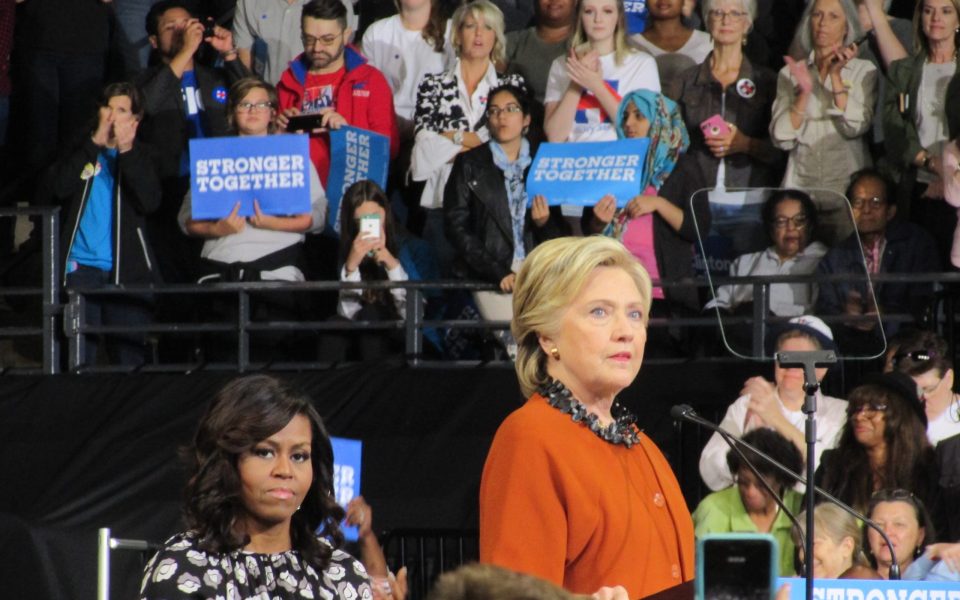You might have noticed Sanders Davis, his long, brown hair tied back in a ponytail and horn-rimmed glasses manifesting a friendly, thoughtful presence while stocking the beer cooler or working behind the counter late at night at University General Store in Greensboro.
That was a couple years ago, and the now 27-year-old former UNCG student currently makes his living as a naturopathic healer and working musician, although he still occasionally busks in front of the store — a campus landmark across from College Hill Sundries and in the heart of student housing on Mendenhall Street — to keep himself grounded.
He’s played with a dizzying number of outfits — a ska group called the BFGs in Winston-Salem, Emily Stewart & the Baby Teeth, Vaughn Aed and Grand Ole Uproar, Taylor Bay & the Laser Rays and the Family, among them. As Davis noted during a recent interview at Gray’s Tavern, “I was the guy to call for bass.”
Last year, he played about 150 nights on the road, and he said it’s been gratifying to pare down his portfolio to steady gigging as the bass player with Crystal Bright & the Silver Hands. And while developing his chops and learning to adapt as an accompanist remains a crucial part of his musical development, he also continues to write songs and hone his own vision.
Best described as cosmic Americana, Davis’ original music distinctly projects hopeful themes of interconnection and self-realization. A four-song EP released in early 2015 with Davis’ reedy voice floating over a resonant musical patchwork of acoustic guitar, violin, cello, trombone and drums provides a good representation of his value proposition.
“My music is kind of like a ministry,” Davis said. “Things are connected subtly and electro-magnetically. It’s a whole thing about how people affect each other.”
The theme of interconnection is readily apparent in “Everything,” in which Davis sings, “Everything seems to you all around as you’re passing through/ Where are you going? Haven’t you heard the news?/ Time was never there, do as you will do.”
Davis practices healing touch therapy and holds a certification from the California-based HeartMath Institute. As an indication that naturopathic healing is at least equally if not more important to Davis as music, he mentioned his gratitude at having mentors twice his age and invited this reporter to an individual energy healing session, mentioning that he works on a donation basis instead of for a flat fee.
Davis’ music comes from the same spirit of centeredness and detachment as his healing work.
“It’s about expression and being true and direct,” he said. “People resonate with that. They want that authenticity. There’s so many things in the world that get in the way. I relate it to the eight-fold path Buddha was talking about. Even though difficulties are inherent in our lives, it’s about finding a way to be at peace with that. It’s about effortless mastery.”
As Davis continued, he shifted seamlessly from music to healing.
“When you’re at ease, you’re in the zone,” he said. “We teach people how to do that intentionally. It’s something that everybody experiences as fleeting. It doesn’t have to be fleeting. That’s where meditation comes in. It’s beyond language. It’s the big, expansive mind that you can feel and touch.”
It wasn’t always this way.
He got burned out studying jazz at UNCG, and even came to the point of deciding he was done with music. It took learning about healing touch practice to reconnect to himself.
“Being a perfectionist and being so concerned with perfection, I didn’t understand that perfection is in the imperfection. It’s more of an experiential moment,” he said. “I got burned out on trying to be perfect, with that rat race — striving for something that isn’t actually there.”
In 2008 he taught himself how to play guitar to accompany his vocals as he developed his songwriting craft.
“It’s something where you can play a song yourself, not to where the technicality takes precedent,” Davis said. “It’s the musicality; it’s the song.
“I just kind of figured it out,” he continued. “I spent time with it. It was a meditation. It gave me something to focus on.”
Davis’ friend, Josh Watson — the primary creative force behind Grand Ole Uproar — introduced him to the music of Jerry Garcia and the Grateful Dead a couple years ago. Garcia and the Dead, along with Neil Young, Gram Parsons and Hank Williams, have provided ballasts for Davis’ interest in synthesizing storytelling, improvisation and mind expansion. The late Garcia as a trailblazer of psychedelic rock who immersed himself in American roots music throughout his life provides a particularly compelling model. But contrary to Garcia’s example, Davis doesn’t promote substance use.
“There’s ways of accessing that consciousness without chemicals,” he said. “I think it’s people’s right to have access to that and to know how to access those tools that help your well-being rather than relying on pharmaceuticals.”
The Dead’s music, jazz and old-time music are all fertile areas for improvisation, Davis said, comparing the process to “quantum computing.”
“It’s free, but not floating off into space,” he said. “It’s a balancing of opposites. It relates to everything. It’s about breath. It’s a wide path. The road I’m heading down is sharing peace and wholeness.”
Join the First Amendment Society, a membership that goes directly to funding TCB‘s newsroom.
We believe that reporting can save the world.
The TCB First Amendment Society recognizes the vital role of a free, unfettered press with a bundling of local experiences designed to build community, and unique engagements with our newsroom that will help you understand, and shape, local journalism’s critical role in uplifting the people in our cities.
All revenue goes directly into the newsroom as reporters’ salaries and freelance commissions.


Leave a Reply